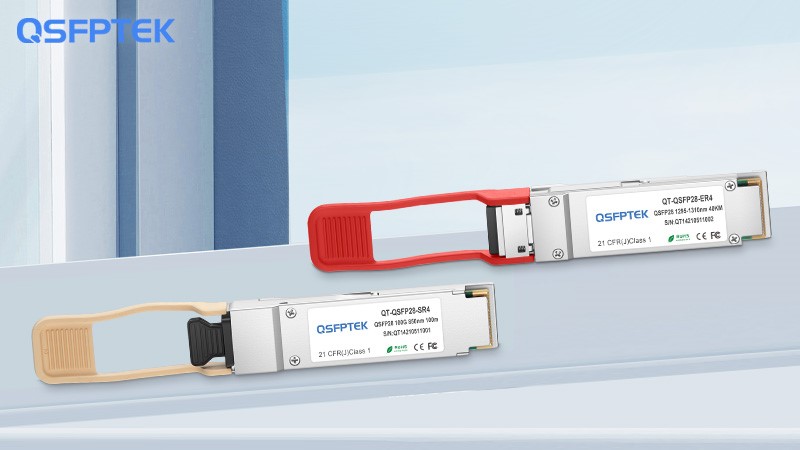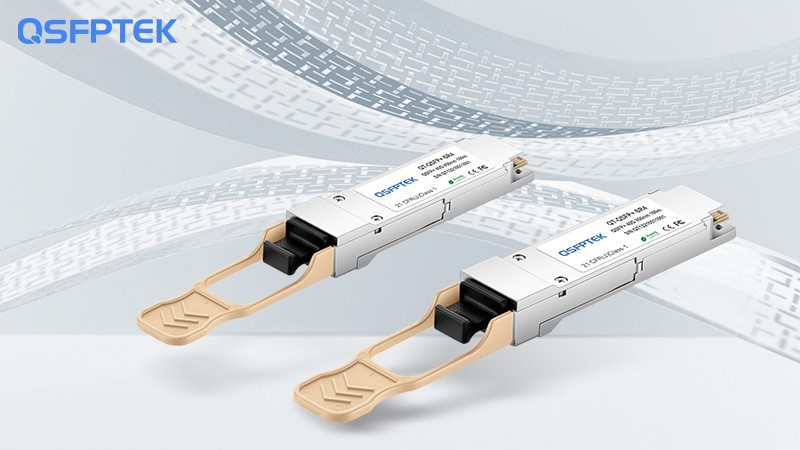With the rapid development of the IT industry, cloud computing, virtualization, high-definition video, e-commerce, social networking, and the emergence of many high-density transmissions have made data centers increasingly demanding 40G Ethernet, and a series of optical modules, such as 40GBASE-SR4, 40GBASE-LR4, etc. So do you know what 40GBASE-SR4 is and why do data centers need 40GBASE-SR4 optical modules?
Table of Contents
ToggleOpportunities and Challenges for Infrastructure Networks.
From a business point of view, the integration of the three networks has provided network cables with richer content: downloading files, e-shopping, watching high-definition videos online, and high-definition video calls, etc. This also makes the bandwidth demand of users rise rapidly from 64K to 10M, 100M, and gigabit. Some data show that the growth rate of 10G ports has been much higher than that of low-speed ports, and the application of 10G ports on access and client devices is increasing. This will inevitably lead to the rapid growth of the demand for 40G and 100G ports at the network aggregation layer and backbone layer. The deployment of cloud computing has accelerated the business demand for network bandwidth. Massive amounts of data are constantly interacting, the Internet is becoming the second living space of human beings, and more and more things are or will be carried out on the Internet.
More powerful data centers and higher network bandwidth are the physical basis for all of this. This revolution has gradually penetrated into the data center. The rapid development of processor technology and the infinite enrichment of services have promoted the widespread application of virtualization technology in data centers.
The server’s requirements for the interface. With the integration trend of data center network construction, local area network, storage network, and high-performance computing networks are gradually unified to the Ethernet interface, which also greatly increases the server’s demand for 10G to 40G Ethernet interface. Once 10G and 40G interfaces become popular ports for servers, 40G and 100G interconnection switch interfaces in the data center become very necessary and urgent. Not only that, super-large data centers often have large geographical spans (considering the special needs of data center equipment rooms for power, space, etc., they are often built in some relatively distant places) The interconnection of these data centers and the connection with the Internet Access requires a higher rate link.
What is a 40GBASE-SR4 Module?
40GBASE-SR4 is currently the most widely used and popular 40G transceiver for short-range transmission in data centers. The maximum link length on OM3 and OM4 multimode fibers are 100m and 150m. It is an MTP/MPO interface parallel optical fiber transceiver designed as a 4x10G transmission mode. 40GBASE-SR4 can send and receive 40G signals simultaneously through four 10G SFP + channels in one module. You can usually see that this type of transceiver is used in the data center to interconnect two switches with a 12 channel ribbon cable.

Conclusion
The 40G optical modules provide a good choice for the core/backbone layer network. With the application of a series of products such as 40GBASE-SR4, it provides a high-speed transmission solution for data centers. 40GBASE-SR is also cost-effective, high-speed The advantages of density transmission occupy a large market. If you have any questions about 40GBASE-SR4, please contact QSFPTEK’s customer service via sales@qsfptek.com. QSFPTEK is a company specializing in the production of high-quality optical modules, including 40GBASE-SR4 and other series products.
Also Read: What Is Huawei’s New Super Device System?
Shashi Teja
Related posts
Hot Topics
Everything You Need to Know About a Savings Plan in 2025
A savings plan is a financial tool that offers the combined benefits of insurance & growth. This ensures financial security…
Mobile Threat Defense: The Silent Shield Behind Every Secure App
Mobile apps are found everywhere in India’s rapidly developing digital landscape—from banking and online shopping to healthcare and learning. And…



